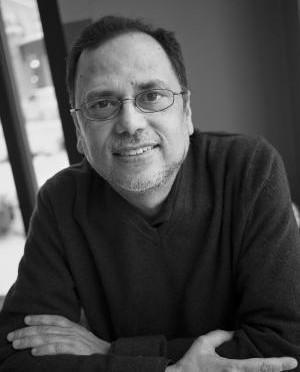
James Buckser
Staff writer
As an accomplished, prize-winning academic, Dipesh Chakrabarty is interrogating the impact of human modernization on the natural world.
“In some ways we’re facing the underside of our having done so well,” Chakrabarty said. “The question is, how do we keep the benefits of modernization, that actually help poor people or help bigger sections of society, but at the same time, make sure that we don’t imperil our own existence?”
Chakrabarty will speak at 2 p.m. today in the Hall of Philosophy, closing out Week Seven of the Interfaith Lecture Series and its theme “Nature as Sacred Space.”
He serves as the Lawrence A. Kimpton Distinguished Service Professor in History, South Asian Languages and Civilizations at the College of the University of Chicago and is the author of several books including The Climate of History in a Planetary Age.
The book raises the idea of a planetary age, which takes into account the role of all aspects of the planet as opposed to a humanity-centric global age.
“We should take a planetary view, talking about the role of microbes, for instance, in changing the atmosphere of the planet, in maintaining the oxygen balance in the atmosphere,” Chakrabarty said. “In other words, to understand that the planet really is the condition for our living here and being here, it’s really other forms of life that maintain the oxygen balance in the atmosphere, we don’t, we are just beneficiaries of it.”
Mankind, Chakrabarty said, has developed a control over the planet “unbeknownst to most human beings.”
“We now have the capacity to change the cycle between glacial periods in the planet’s history,” he said. “We have fended off the next Ice Age by anything 5,000 to 50,000 years, so we’ve become planetary without knowing so. We’ve developed technology that affects the state of the planet, it affects the processes on the planet that support life.”
At his lecture today, Chakrabarty said he will discuss the question of whether people should let nature be, or take it over.
An example he gave was using planes and aerosol particles to “geoengineer the climate of the whole planet,” to dim sunlight by a small amount, which he said is “taking over things that happen naturally.” While you may be able to calculate the effect on humans, Chakrabarty said, “you wouldn’t be able to calculate the impact on all other forms of life.”
“Already from India to Indonesia, we have a pollution cloud called a brown cloud, which dims sunlight by about 8%, and for that reason, most people in India grow up with the deficiency of vitamin D,” Chakrabarty said. “That, for me, is not treating nature as sacred at all, and treating it as my backyard.”
Chakrabarty said he felt the question of sacredness was not necessarily religious, rather a question of “whether we should be a little bit in awe of nature and its forces.” In the face of forces like tsunamis and earthquakes, Chakrabarty said, we “only want to survive, like other animals.”
Chakrabarty hopes Chautauquans come to understand what it means to be “planetary.”
“We have become planetary,” Chakrabarty said. “So the question is, whether we continue to be planetary in a way that actually increases the risks for us or whether we remain plane tary in a way where it’s less risky for us.”
Chakrabarty said the main part of his lecture will try “to explain to people why we haven’t been able to act faster than we have,” due to the “profoundly difficult nature” of the problem.
“I don’t have an easy solution, but I want people to go back with a deeper understanding of the problem that we face,” Chakrabary said. “The problem has to be addressed in multiple ways because people are differently placed in different parts of the world, there is no one-size-fits-all solution, but on the other hand, we are in it all together.”




